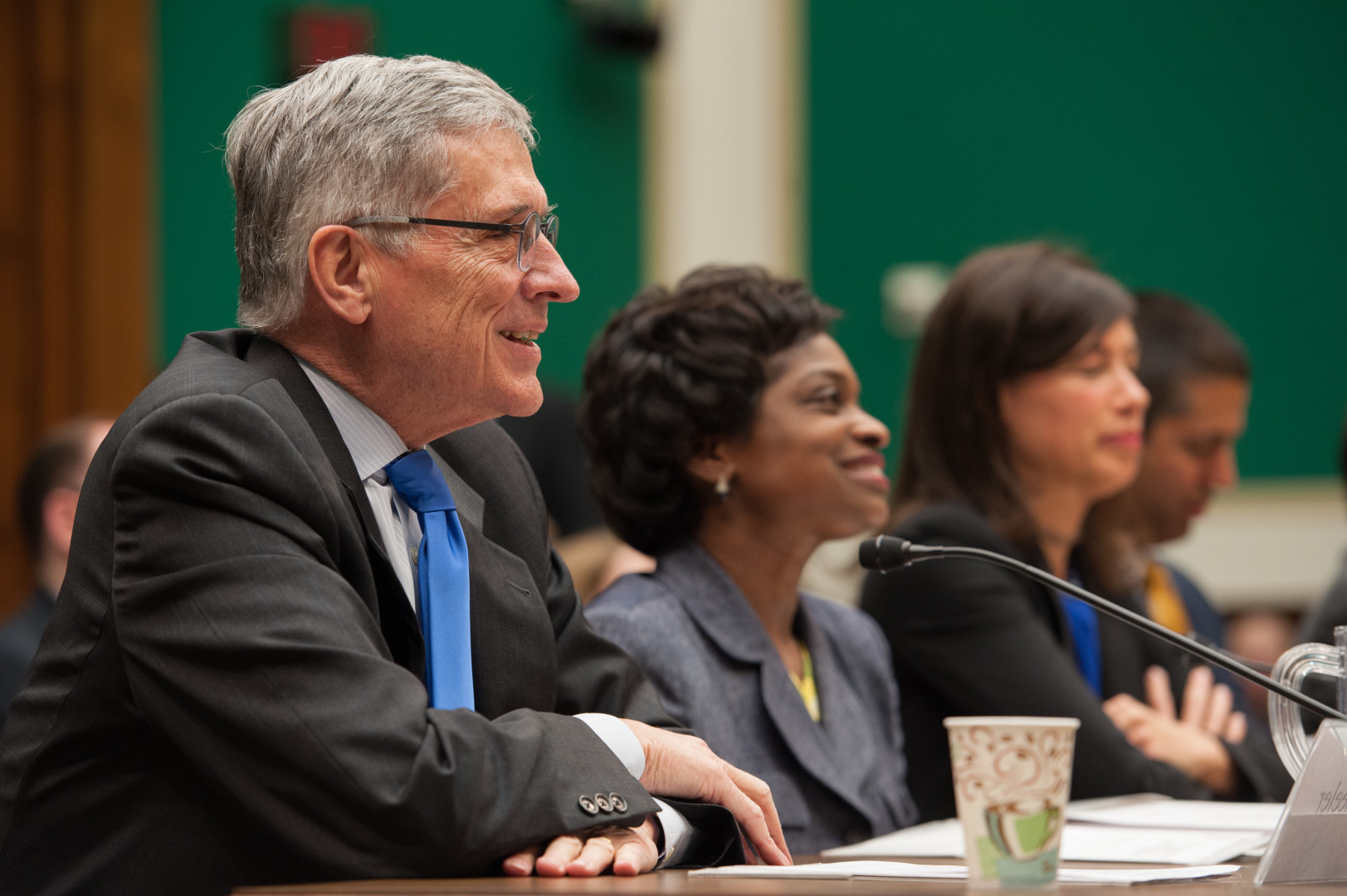September 29, 2016 at 11:04 am ET
- Share on Facebook
- Share on Twitter
- Share on LinkedIn
- E-mail to a friend



The Federal Communications Commission abruptly removed its cable set-top box proposal from the agenda for its Thursday meeting, indefinitely delaying a highly anticipated vote on one of Chairman Tom Wheeler’s top remaining priorities.
In a statement issued just minutes before the start of the meeting, Wheeler and fellow Democratic Commissioners Mignon Clyburn and Jessica Rosenworcel said the proposal will go on the commission’s circulation list and remain under their consideration.
The commissioners stressed their continued commitment to changing the set-top box market to help foster competitiveness. “We are still working to resolve the remaining technical and legal issues, and we are committed to unlocking the set-top box for consumers across this country,” they wrote.
The unexpected removal of the item took many by surprise, including some inside the FCC building itself. A Republican commissioner’s office was unaware of the move less than 10 minutes before it was announced.
Wheeler’s set-top proposal had already been revised once, when the commission dropped a plan to allow third-party developers direct access to cable set-top boxes.
Three weeks ago, the commission released a new plan that would have mandated the development of pay-tv apps that consumers could use to stream content on the device of their choice. Wheeler’s office announced its intention to bring the revised plan to a vote on Sept. 29.
But the new proposal was pilloried by a broad array of industry representatives for its inclusion of a copyright licensing board overseen by the FCC.
Broadcasters, programmers, pay-tv providers, content creators and even app developers all criticized the copyright plan. And several Democrats — including Rosenworcel, widely seen as the key swing vote on the plan — said the FCC didn’t have the authority to insert itself into the copyright licensing process.
Earlier this week, Morning Consult and Multichannel News separately reported that a compromise between programmers and the FCC was being discussed, whereby the commission would remove the provision allowing the commission to oversee the copyright licensing process.
The FCC would instead review the apps marketplace after two years of operation, and then determine whether it was appropriate to step in, according to sources familiar with the discussions. It is unclear whether that compromise is still on the table.
According to an FCC filing, an aide to Rosenworcel reached out to representatives from the programming and content industries on Wednesday, just hours before the scheduled vote.
The Rosenworcel aide asked the industry representatives to clarify their legal concerns with the Wheeler’s assertion that the commission could review or alter any pay-tv apps license. The programmers said they would not accept any FCC oversight of the licensing process — including through a possible complaints process floated in an earlier filing.
The aide also asked the programmers about a proposed two-year assessment period after the pay-tv apps market came online. The programmers appeared to acquiesce to the idea, but they stressed that the commission could not entertain complaints over the license’s non-competitiveness during that time.
The Internet and Television Association, or NCTA, which represents cable companies, released a statement celebrating the news of the delay. “We are pleased that the FCC has chosen to delay consideration of its set-top box item and hope that additional time will lead to meaningful public review and comment on any newly crafted proposal under consideration,” the statement read.
Chip Pickering, the CEO of trade group INCOMPAS, said the FCC “has an obligation to continue working toward solutions that bring real choice, innovation and lower prices to consumers.” INCOMPAS represents tech companies such as Amazon and Facebook.
“The members of the commission are smart, well intentioned, and we believe they will find common ground that will open the market and promote innovation,” Pickering added.